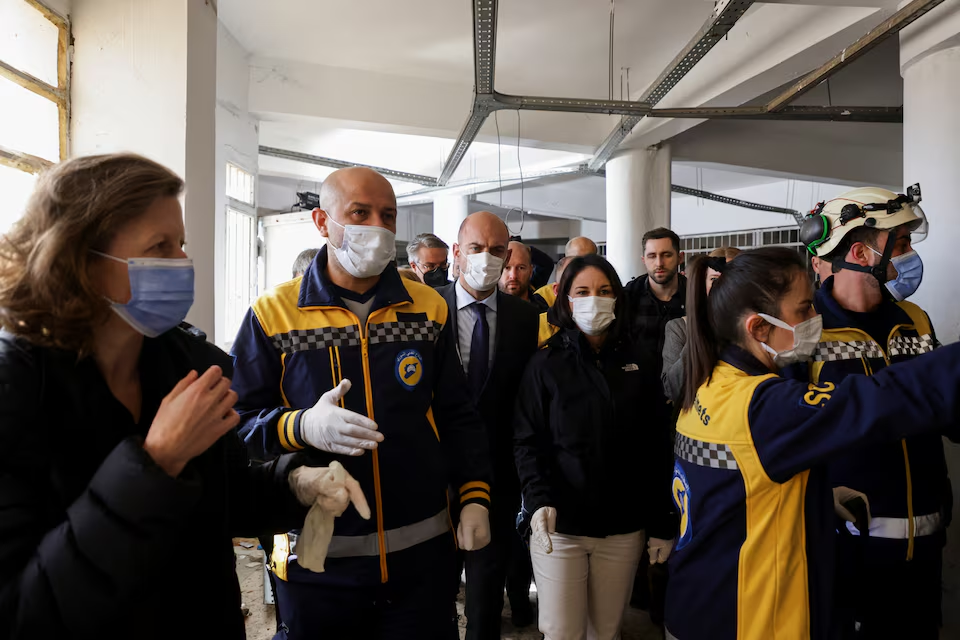German and French foreign ministers have embarked on a historic visit to Damascus to engage with Syria’s new rulers, signaling a cautious step toward forging a new relationship after the ousting of President Bashar al-Assad. Annalena Baerbock of Germany and Jean-Noel Barrot of France met with Syria’s de facto leader Ahmed al-Sharaa on behalf of the European Union, aiming to promote peace and stability in the war-torn nation.
This visit marks the first high-level EU engagement in Syria since rebels seized control of Damascus on December 8, forcing Assad into exile and ending his family’s decades-long reign. The ministers emphasized the need for a peaceful transition, protection of minorities, and adherence to agreements with regional actors.
A New Chapter in Syria
The meeting with Sharaa, leader of Hayat Tahrir al-Sham (HTS), took place in the Damascus People’s Palace. Although details of the talks remain undisclosed, the visit underscores the EU’s cautious openness to dialogue with HTS, a Sunni group previously linked to Al Qaeda. HTS has since pledged to govern inclusively and abstain from exporting extremist ideologies.
“Our message to Syria’s new leadership: respect for civilians and minorities is paramount,” tweeted Kaja Kallas, the EU’s foreign policy chief. The international community, however, remains wary, debating whether to remove HTS from terrorist designation lists.
Challenges Ahead
Baerbock expressed a mix of optimism and caution: “We know HTS’s past, but we also see a genuine desire for moderation.” She stressed that progress hinges on distancing from extremism and building bridges with diverse Syrian factions, including Kurdish forces allied with the U.S.
Barrot echoed these sentiments, advocating for a “sovereign and safe” Syria free of terrorism, chemical weapons, and foreign interference. He pledged EU support for Syria’s democratic transition, including technical aid for drafting a new constitution, but noted that lifting sanctions would depend on tangible progress.
Reopening Doors
The French embassy in Damascus, shuttered since 2012, was also visited by Barrot, signaling tentative steps toward restoring diplomatic ties. The ministers further toured Sednaya Prison, infamous for atrocities under Assad’s regime. Baerbock called it “a prison of hell” and urged the international community to seek justice for victims.
Hope for a Fragile Transition
While Syria’s new rulers strive to rebuild trust, pressing issues remain, including achieving a permanent ceasefire and integrating Kurdish fighters into a unified state. The EU ministers’ visit reflects a fragile but tangible hope for Syria to rejoin the international community and stabilize after more than a decade of civil war.



